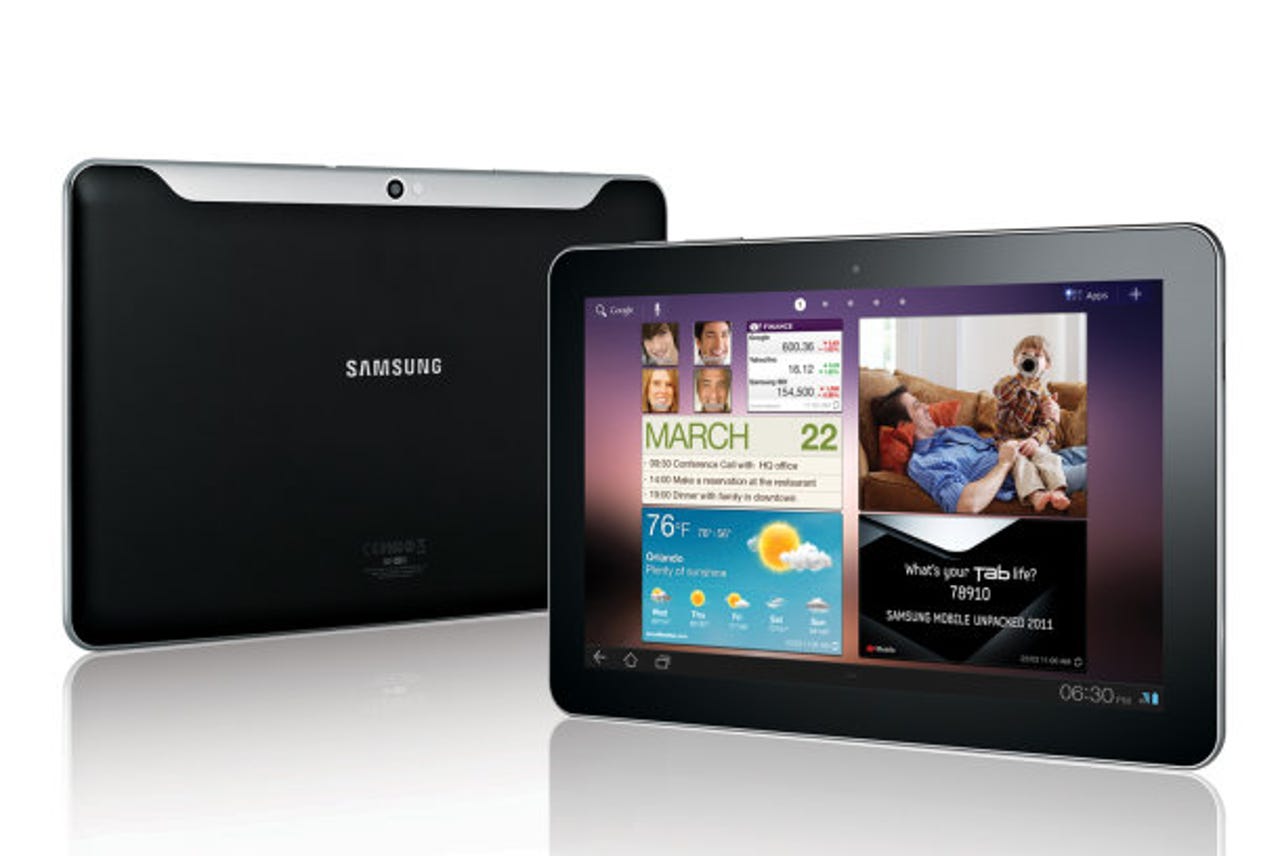Quad-core mobile chips heading for tablets first

Smartphone software + quad-core chips = tablets 2.0?

Dual-core chips power tablets such as the Samsung Galaxy Tab 10.1 but quad-core tablets are likely to be nextImage: Samsung
Quad-core mobile chipsets are coming but they're heading for tablets first, rather than smartphones.
Tablets and smartphones packing dual-core chips are already lining up - with the new iPad 2 using a dual-core chip, along with several high-end Android slates. Dual-core smartphones are also being fired into the market - by mobile makers including LG and Motorola. But mobile chipset makers are looking towards the next generation of chipsets - with four cores inside.
Quad-core and dual-core chips allow for parallel processing - so certain tasks such as multitasking and gaming can be performed faster or more effectively than when using a single-core chip. Multicore chips are old news when it comes to laptops and desktops but dual-core chips have only recently started cropping up in mobile devices. Commercial quad-core mobile products have yet to hit the shelves.
Earlier this year, mobile chipset maker Nvidia demoed what it described as the first mobile quad-core processor, showing it running in an Android tablet at the Mobile World Congress (MWC) trade show in Barcelona. Chipmaker Qualcomm also announced a quad-core design for its Snapdragon mobile chipset at MWC: the 2.5GHz quad-core APQ8064.
Writing in a blog post in February, Michael Rayfield, general manager of Nvidia's mobile unit, said the company expects its customers to be planning production of quad-core devices this August, adding: "I can't wait to see the next wave of superphones and super tablets."
Quad-core powered superphones may be coming down the line but Enrico Salvatori, senior VP of Qualcomm Europe, reckons tablets are the natural home for these chipsets in the first instance. For this reason, he said the chipmaker's first quad-core chipset will come with wi-fi inside but no 3G modem.
"We currently believe that [the quad-core Snapdragon chipset] is a platform for tablets first of all," he told silicon.com. "It's a platform for a category of devices that could provide connectivity also with the wi-fi [not just via 3G]... At this point in time, quad-core implies a performance that we see first of all in the tablet segment but the market for smartphones is evolving so rapidly that it is possible to predict that these [quad-core chips] will come to the smartphone later on."
While not replacing desktop PCs and laptops, quad-core mobile devices are certainly "going more and more" in that direction, according to Salvatori - and will be helping to power the ongoing convergence of smartphones and netbooks.
He said new types of connected devices are aiming to improve the mobile internet user experience by adopting smartphone features - such as touchscreens, mobile OSes and location data - and pushing them onto larger form factor devices such as netbooks and tablets.
"At Qualcomm... we were [initially] focused on the smartbook concept in terms of migrating the smartphone user experience to the netbook… Now we see that concept is being refined in the tablet."
Qualcomm is not looking to retire its single-core mobile chips, or replace dual-core chips with quad-core ones - but rather...
believes all types of mobile chip will remain useful. It's a case of horses for courses, according to Salvatori, who noted the chipmaker now has a single-core mobile chip that runs at 1.4Ghz.
"We're not in the market of replacing the dual-core with quad-core. But taking into account the use cases and the applications, there are devices and apps that are very well supported by single core [chips] and so that's why we continue developing the single-core architecture and the dual-core architecture in parallel [to the new quad-core chip]," he said.
What can quad-core do that dual- or single-core chips can't? These chips aren't necessarily more powerful than their fewer-cored brethren but they are likely to be better at running apps concurrently, which could benefit certain uses, according to Salvatori - while for other tasks, single- or dual-core chips will remain perfectly adequate.
"It's a matter of the different [quad-core chip] architecture enabling concurrent apps, which is enabling synchronous CPU power to the different apps that are running. So again it's very much linked to the use-case scenario that you are supporting or targeting because a single-core architecture running on 1.4GHz is very, very powerful actually, compared with the 2.5GHz quad-core."
Salvatori said the quad-core Snapdragon chip will be available to Qualcomm's customers by the end of the year, with commercial quad-core mobile devices potentially arriving in the market by late 2012.
While the quad-core chipset is likely to get a 3G modem over time, Qualcomm believes multiple connectivity technologies will be used to provide connectivity in the mobile chips of the future that will power the internet of things - so not just 3G but wi-fi, NFC, Bluetooth and FM radio.
"That's why we're adding more and more connectivity chipsets in the system platform Snapdragon," he said. "We are trying to expand our roadmap to make available to our customers more and more platforms, and deliver more and more connected devices."